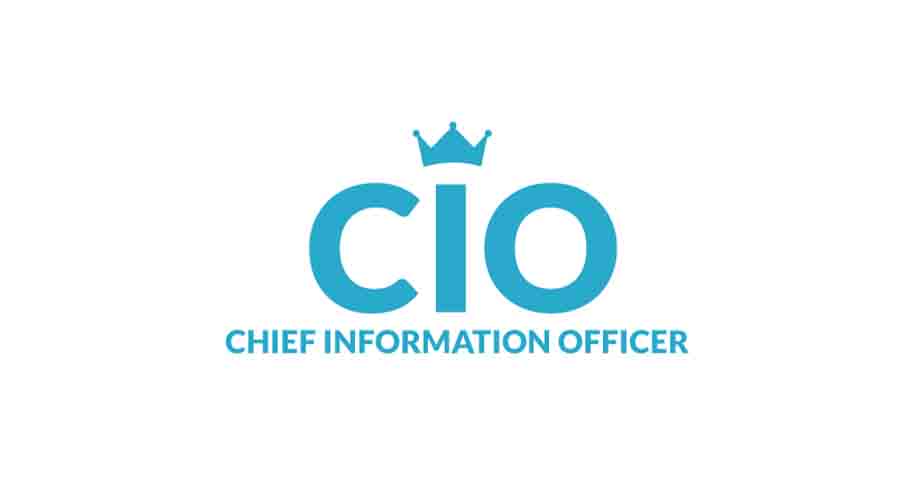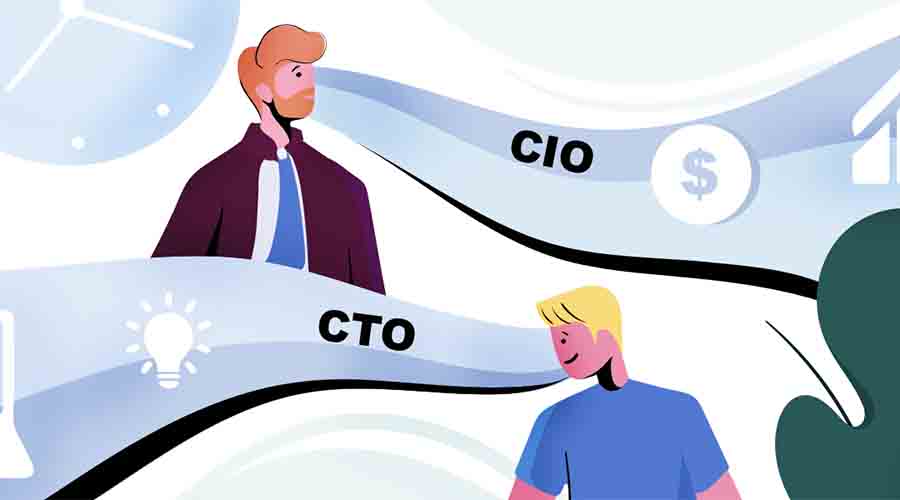Every employee in a company has their own unique role and contributions that help drive the success of the company as a whole. An important area to focus on employment is information technology (IT) and its related job positions as more and more companies are relying on digital systems to ensure daily productivity. day. In this article, let's find out what a CIO is and look at the job responsibilities, skills, and additional factors that may be needed by someone pursuing a CIO position in an organization.
Table of Contents [Hide]
1. What is CIO?
CIO stands for Chief Information Officer, which is a C-level title given to the chief executive officer in charge of information technology initiatives and strategies. The CIO oversees the computer systems necessary to support the organization's own goals and objectives.

What is CIO?
Role CIOs were established in the 1980s. At the time, CIOs were primarily focused on managing engineering projects, launching systems, and using technology to increase efficiency, productivity, and cutting. Cut the cost. Work evolves as the storage, transmission and analysis of electronic information becomes more and more important in businesses.
The roles of these company leaders continue to expand. They have become key contributors to how technology is used to further achieve business goals and grow profitable end-to-end. CIOs currently lead digital transformation initiatives, as well as efforts leading to widespread organizational change.
In recent decades, technology has become key to driving product and service innovation and contributing to business growth. As a result, CIOs have forged closer relationships with the business side of their organizations. Many new technologies are driving changes in the enterprise, including the cloud, data analytics, DevOps, internet of things, and artificial intelligence.
As new technologies emerge and digital transformation accelerates, CIOs must develop skills that go beyond traditional technology management. CIOs have increased accountability. And in large organizations, they often delegate responsibility for day-to-day IT operations to the deputy. These technology-focused professionals often manage specific areas of IT.
2. Job Description and Duties of CIO
The responsibilities of CIOs vary by organization, industry, and region in which they work. The CIO in most organizations is responsible for the IT and computer systems that support the goals of the business. The job of the CIO is to innovate, collaborate, balance IT budgets, and motivate IT staff.

Job Description and Duties of the CIO
The CIO's responsibilities include the following:
Manage IT staff and develop departmental goals.
Develop and monitor IT budget.
Plan, implement, and maintain IT systems and operations.
Manage the organization's software development needs.
Develop IT policies, procedures, and best practices.
Stay up to date with emerging IT and technology trends.
Develop and implement IT best practices across the organization.
Ensure IT strategies and processes support company-wide goals.
Monitor relationships with suppliers, contractors and service providers.
Explain to the board of directors and other executives the benefits and risks of new IT-related projects.
In many corporate organizations, the CIO reports to the chief executive officer (CEO). At some companies, the CIO has a seat on the executive board. CIOs typically have close relationships with a number of other C-level executives, including the following:
Head of Marketing
finance director
Supply chain manager
Resource officer director
CIOs also work closely with the chief technology officer, who typically focuses on products to meet customer needs. They may have overlapping responsibilities with chief security officer and chief digital officer in companies with those positions.
See more plastic belt manufacturers in Binh Duong
3. Requirements and qualifications
The CIO's educational background may vary. However, they usually have at least a bachelor's degree.

Requirements and qualifications
Traditional college majors for this position include IT, computer science, management information systems, IT management, and project management. CIOs can come from other technology areas - including networking, data science, or security.
Some companies seek to hire CIOs with graduate degrees in areas such as IT management, project management, and computer information systems. Others seek candidates with a Master of Business Administration degree with an IT focus.
CIOs don't necessarily have a technical degree to lead an IT organization. With full technical knowledge
incubation, people with no degrees or no degrees in technology can run these organizations. In some cases, this technical know-how can come from on-the-job learning.
Regardless of their educational background, CIOs must be able to monitor and understand technology trends and harness the knowledge of technology professionals. Other skills and expertise that can be useful in a top engineering job include:
Legal expertise
Business Finance
Data Management
Supplier and partner management
Project management
Compliance
Protect
4. Key Skills
Organizations are looking for CIOs with skills in two important categories: hard skills and soft skills.
Main skills
What difficult skills do CIOs need?
These are skills related to specific, teachable abilities needed to do a certain job. CIO job postings often require candidates to have the following difficult skills:
Proficient in establishing IT service frameworks and IT security policies.
Ability to recruit and manage IT staff.
Project management skills.
Budget management skills.
An aptitude for analyzing customer engagement.
Ability to establish partnerships with service providers and vendors.

What soft skills does a CIO need?
Soft skills include an individual's ability to interact with others. These include empathy, optimism, integrity, teamwork, and humour. All of these attributes contribute to one's leadership and management abilities, both of which are important parts of the CIO job.
An important aspect of the CIO job is selling the benefits of technology and the needs of digital transformation to corporate executives and boards of directors. Therefore, interpersonal and communication skills are especially important. These skills not only enhance an IT leader's relationships with other executives and their IT staff, but also improve job performance and career prospects.
5. What is the difference between CIO and CTO in an organization?

What is the difference between CIO and CTO in an organization?
Chief information officer (CIO) and chief technology officer (CTO) are two executive positions that operate at the same level in the hierarchy of an organization. The difference between the two lies in their day-to-day responsibilities and areas of focus.
Chief information officer, as mentioned above, acts as a manager overseeing all activities in the IT department to maximize internal productivity, while chief technology officer is responsible for overseeing Engineers, product developers, and designers work within the company to create and improve external technologies for customers.
Another way to see the difference between these two roles is that the CIO focuses on internal processes, while the CTO focuses on external processes.
As their jobs evolve and require different skills, CIOs must be flexible. They will have to play to their own diverse strengths and those of their colleagues, teams and partners.
Collaboration will be key, and tasks and job titles will overlap. When working with their team, CIOs may have to shift their focus from talent acquisition to talent development on the job and through training programs.
Check out more related articles:
- What is Kanban? Methods and some benefits of using Kanban
- Beautiful certificate of merit template, basic content that should be on the certificate of merit

























































































































































































































































































































































